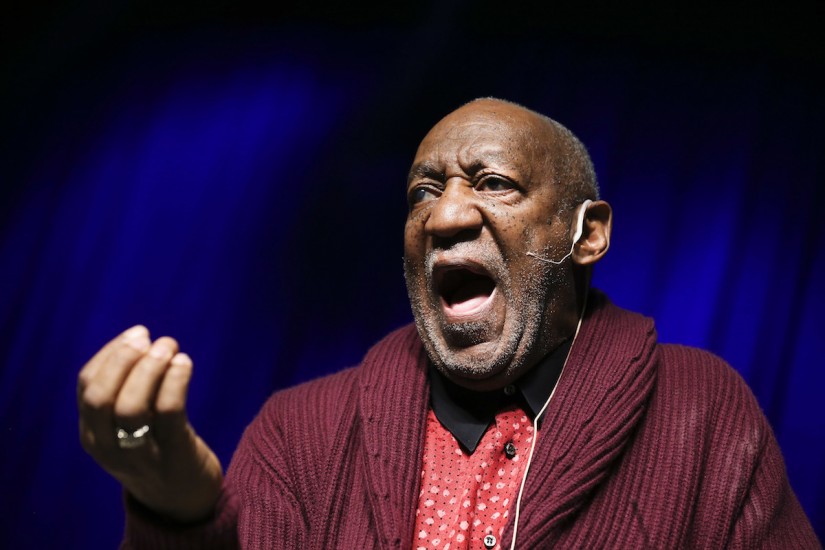Five years ago, he seemed to have gotten away with it. Although more than 10 women came forward with allegations against Cosby in the mid-2000s, they would not become fixed in the public consciousness for another decade. In the meantime, Cosby had built an image as a prophet of black conservatism, scolding poor blacks for not lifting themselves out of poverty, and for focusing on discrimination.
“People getting shot in the back of the head over a piece of pound cake! Then we all run out and are outraged, ‘The cops shouldn’t have shot him.’ What the hell was he doing with the pound cake in his hand?” Cosby said in his 2004 speech to the NAACP, which became known as the “Pound Cake” speech, because of the aforementioned anecdote. “Ladies and gentlemen, in our cities and public schools we have 50 percent drop out. In our own neighborhood, we have men in prison. No longer is a person embarrassed because they’re pregnant without a husband. No longer is a boy considered an embarrassment if he tries to run away from being the father of the unmarried child.”
Many of the statistics cited in the speech were false, a slander on some of the most vulnerable people in the country, and Cosby seemed less concerned with black prosperity than with black respectability. It wasn’t simply that the black poor were not thriving in America; they were also embarrassing Cliff Huxtable, the dear sitcom doctor dad living in an expensive Brooklyn brownstone. They were not worthy of him. It was not yet clear that the man known as Bill Cosby was as much of a fictional character as the good doctor.
Nevertheless, its moralizing tone drew praise from many within the black community, and especially from white conservatives. The next year, Andrea Constand, whom Cosby was convicted of assaulting on Thursday, would report him to the authorities, and the decades of allegations would begin to come to light. Many people, likely owing to Cosby’s public image, found them irreconcilable with the Cosby they believed they knew, and dismissed the 14 women accusing him at the time as liars. A decade later, that number would eventually grow to more than 50.
The allegations against Cosby never went away, but they did seem to fade in the public consciousness, until about a decade later.
